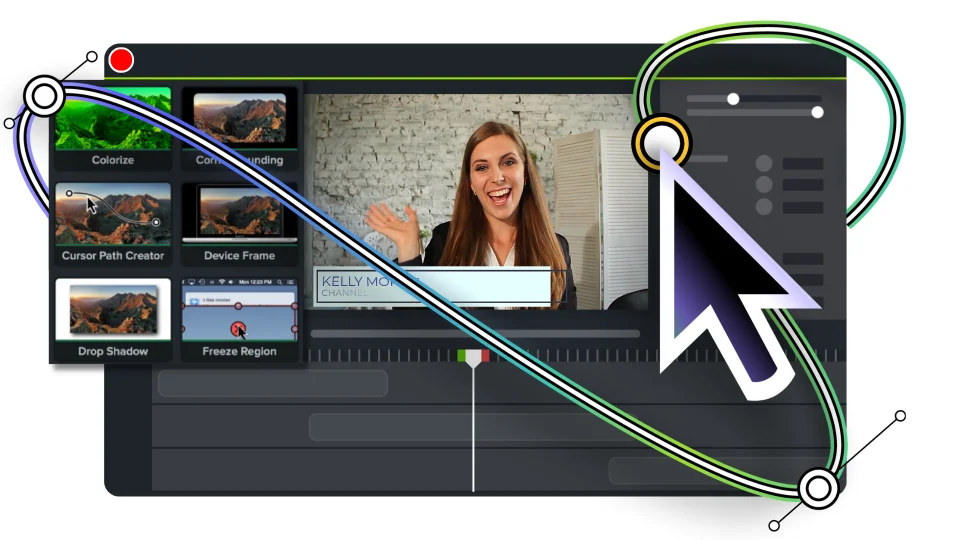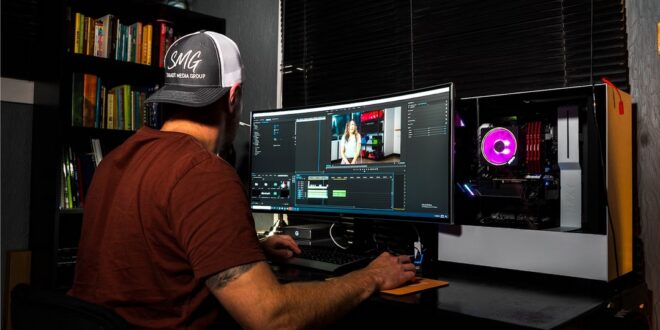Video content is taking over written content (to an extent). Studies revealed that humans are more able to digest video content than they are written, so that’s the way ad campaigns are going. That’s not to say that written content is on the out – people will always read. But it highlights the seismic shift in consumer habits.
And more people are going into video content creation for YouTube, blogs, etc.
Let’s explore how you can become a self-made video pro.

User-Friendly Video Editing Software
The right video editing software can make learning easy. Vloggers like to use software like Adobe Premiere Pro, but that can be a little complex for beginners. Look for software that offers intuitive interfaces and helpful tutorials.
Many of these programs come packed with features that can elevate your videos, such as color correction, transition effects, and more, helping you produce polished content right from the start. When choosing software, consider your specific needs and skill level.
Some may offer advanced features like multi-track editing and special effects, which are great for more complex projects, while others might focus on simplicity and ease of use, perfect for beginners.
Look out for a community forum or support network – they can have valuable resources for troubleshooting and creative ideas. As you become more familiar with these tools, you’ll find it easier to bring your vision to life.
Leveraging Online Resources and Communities
YouTube is a great place for online tutorials. Online forums also have a wealth of knowledge, but some people find it easier to learn with a step-by-step video. You’ll find that most people who edit videos are self-taught by watching YouTube tutorials – Think Media has released excellent educational videos.
These platforms host experienced videographers and enthusiasts who regularly share tips, tricks, and advice. Engaging with these communities keeps you updated on the latest trends and techniques in video production. Interactive communities like Reddit and specialized videography forums are also great for getting personalized advice and feedback on your work.
By participating in these online spaces, you gain access to a diverse range of experiences and perspectives, enriching your understanding and approach to video production.

Mastering the Art of Storytelling
A great video is more than just visually appealing. It tells a compelling story. Studies show that consumers are more interested in brands they feel an emotional connection to. If you’ve noticed, brands have the ‘Christmas advert competition’ to see who can create the most tearful video.
Focus on developing your storytelling skills by creating video structure-like content. An introduction, story, and conclusion.
You can also watch popular videos within your intended genre to understand what makes them effective. Pay attention to how they pace their content, the type of narratives they use, and how they keep their audience engaged.
Incorporating High-Quality Sound
Sound is a critical element in video production. The right sound will enhance the visual effects of your video. But they must be high-quality sound effects to add depth and realism to your videos. Poor-quality sound effects that sound like they’ve come from a high school keyboard won’t work.
There are numerous free and paid sound libraries available online where you can find effects ranging from subtle background noises to dramatic musical cues.
When selecting effects, consider how they complement visual elements and the mood. Effective sound design should balance the audio to ensure it supports, rather than overwhelms, your visual content. Experiment with layering different sounds to create a rich audio landscape that captivates your audience.
The timing and placement of these sounds can significantly impact the storytelling aspect of your video, making scenes more impactful and memorable.

Experimenting and Practicing Regularly
Practice makes perfect, as the saying goes – mastering video production is easy if you do it often enough. Try new techniques, play with different styles, and learn from mistakes. Each video you create is an opportunity to improve and refine your skills. Challenge yourself with various projects that push you out of your comfort zone.
That might include experimenting with different genres, camera angles, or editing techniques. Regular practice will not only enhance your technical skills but also your creative vision. Keep a critical eye on your work and seek feedback from others.
Learning from both positive and constructive critiques is essential for growth. Remember, every great videographer started somewhere, and it’s the continuous process of learning and adapting that leads to mastery. Embrace the journey and enjoy the process of becoming a storyteller through your videos.
Creating professional-quality videos without taking a course is an achievable goal in this digital age. By harnessing user-friendly software, tapping into online resources, honing storytelling skills, and incorporating elements like sound effects, anyone can produce captivating videos. Remember, the path to becoming a skilled videographer is a journey of continuous learning and passion.
 Comeau Computing Tech Magazine 2024
Comeau Computing Tech Magazine 2024
